Let’s talk about a unique gift and competitive advantage that women have —and yet still whisper about like it’s some shameful secret: periods.
Did your eyes dart around to see who might be reading over your shoulder? That right there is exactly what we need to talk about.
Whether you’re still bleeding, have waved goodbye to your cycle, or you’re somewhere in between—this one’s for you.
Because here we are in 2025—we can 3D print organs and launch rockets to Mars—yet half the population still whispers about a biological process they experience for 40 years of their life.
Most if not all young women enter what should be an empowering season of life anticipating inconvenience, pain, discomfort, and embarrassment. And those young women become you and I – women in their 30’s, 40’s, 50’s who ride the emotional roller coaster through life never actually knowing what’s “normal”, or who to feel safe enough to even ask.
The Research Gap That’s Costing Women Their Health
Here’s a shocker that should be front-page news: until 1993, women were excluded from clinical trials and medical research.
Let that sink in.
For centuries, medicine has been developed primarily for male bodies, by male researchers, tested on male subjects. Even female mice were considered “too unpredictable” for accurate research data.
The medical establishment literally decided it was easier to just study men and assume women’s bodies would respond the same way. (Spoiler alert: they don’t.)
And you might think, “Okay, but that’s old news, right? They fixed that in the ’90s!”
Not quite. The damage was already done, creating massive knowledge gaps that we’re still trying to fill:
- Women’s diseases are often missed or misdiagnosed because doctors weren’t trained to recognize female-specific presentations of illness.
- Drug dosages are often inadequate for women because they were calculated based on the average male body weight and metabolism.
- Entire pathological conditions remain mysterious because research simply hasn’t caught up.
And women continue to pay the price.
“I’ve been turned away from Emergency Departments, ignored by GPs, been told pregnancy is a solution. I’ve been told there is nothing that can be done, been told it’s all in my head, been told excruciating period pain is normal…”

Endometriosis: The Poster Child for Medical Negligence
Let’s take endometriosis—a condition that affects 1 in 10 women worldwide. That’s 176 million women suffering from a disease where tissue similar to the uterine lining grows outside the uterus, causing inflammation, pain, and often debilitating symptoms.
Yet the average time to diagnosis? Six to Eight years.
Years. Not days. Not months. YEARS.
“I went to so many doctors about my pain and they thought it was kidney stones, or a slipped disc, to being red headed and therefore being more sensitive.”
During those years, women are:
- Told their pain is psychological
- Prescribed birth control as a band-aid solution
- Misdiagnosed with IBS, bladder issues, or back problems
- Left to wonder if they’re just “weak” or “too sensitive”
- Made to feel like monthly suffering is their feminine duty
Endometrial tissue is sticky and can literally glue organs together. It can spread beyond the pelvis—there are documented cases of endometriosis in the lungs and even the brain. This isn’t “just a bad period.”
It’s a disease that slowly destroys your body, your social life, relationships, dreams of becoming a mother, careers, work, financial stability, self-esteem, sex life, ability to function normally, ability to parent fully and your mental state.
Yet, I cannot tell you the number of women who I have worked with in recent years who have been told that their pain is all in their head.
What’s worse, the only definitive way to diagnose endometriosis is via laparoscopic surgery. That means many women suffer for years before someone takes them seriously enough to perform surgery.
And let’s bust some myths while we’re at it:
- Myth: Everyone with endometriosis has severe period pain.
- Fact: Many individuals have no pain at all, just other symptoms.
- Myth: Having a baby will “cure” endometriosis.
- Fact: Pregnancy may temporarily improve symptoms due to hormonal changes, but they often return.
- Myth: If you have endometriosis, you can’t have children.
- Fact: Many women with endometriosis conceive naturally or with support.
- Myth: A hysterectomy will cure the disease.
- Fact: Endometriosis is an immune mediated condition, hormone suppression or surgery is not the cure.
One woman shared: “One night Mum and Dad took me to the hospital and told them I had endometriosis. The doctor said ‘How do you spell that?’ and I remember lying there thinking, ‘What am I doing here? He doesn’t even know how to spell it.'”
Why Were We Left Out of Research?
The reasons evolved over time, but they all boil down to three main excuses:
- “Men and women are basically the same except for reproductive organs.” The medical community genuinely believed that women’s bodies differed from men’s only in reproductive organs, which they considered irrelevant to general medicine. (They were spectacularly wrong.)
- “We must protect potential pregnancies.” Fear of harming fetuses meant excluding women of childbearing age from medical research—even when they weren’t pregnant.
- “Women’s hormones complicate the data.” The variable nature of women’s hormones throughout their monthly cycle made research “messy” and “inconvenient.” So instead of studying this crucial aspect of female health, researchers just… skipped it.
The result? Generations of women who’ve been medically gaslit, dismissed, and left to figure out their own bodies.
Body Literacy: The Superpower We’ve Been Denied
This brings me to my passion project: body literacy.
Understanding your cycle isn’t just about tracking fertility or when to carry extra tampons. It’s about recognizing that your period is your fifth vital sign—as important as your pulse, blood pressure, respiration rate, and temperature for understanding your health.
Every month, your body gives you a report card on your overall well-being. Pain, irregular cycles, heavy bleeding, PMS, fatigue—these aren’t inevitable parts of being female. They’re your body communicating that something needs attention.
When you understand the ebb and flow of your hormones throughout your cycle, you gain the power to:
- Optimize your productivity based on your hormonal strengths
- Schedule challenging work during your high-energy phases
- Adjust your exercise routine to work with your body, not against it
- Improve your sleep quality
- Enhance your relationships by understanding your changing needs
- And yes, make informed choices about your fertility
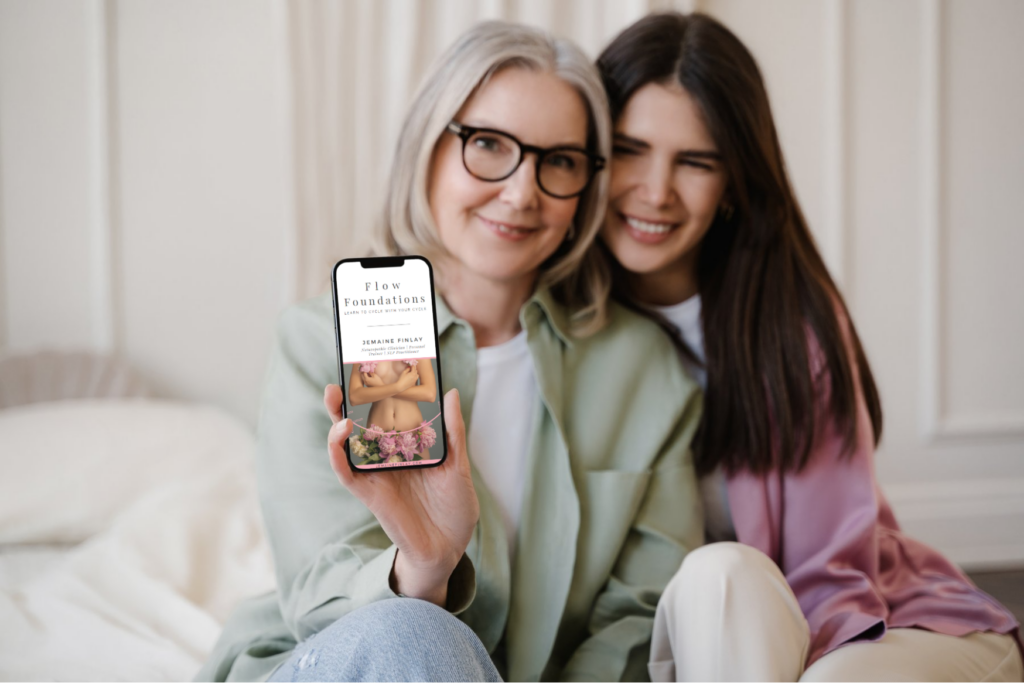
Let me share a quick story.
Years ago during my clinical practice, a young woman came to see me after trying to conceive for two years. She was preparing for IVF—a process that can cost $9,000-$15,000 per cycle, with only about 30% success rate on the first attempt.
Her husband worked a FIFO schedule (two weeks away, one week home). When I asked if they were timing intercourse around her fertile window, she nearly fell off her chair.
This educated woman had no idea she was only fertile for approximately 6 days each month. After adjusting her nutrition to support healthy ovulation and having her husband adjust his work schedule to be home during her fertile window, she conceived naturally.
Six years later, she has three beautiful children—and saved tens of thousands of dollars in medical procedures.
All because of basic body literacy that should be taught to every young girl.
Breaking the Stigma, One Conversation at a Time
Over the centuries, periods have been considered “women’s business”—a phrase that sounds empowering but has actually been used to silence us.
In our western world, period shame might look like bullying at school or adults who still use euphemisms like “Aunt Flo” or “shark week” because they’re too uncomfortable to say “period.”
In many cultures, it’s even more extreme. Women are isolated in huts, forbidden from cooking, touching food, or even speaking to men during menstruation. They’re considered impure, unclean, or even possessed.
We’re in the age of information, with the most advanced understanding of human biology in history, yet women are still shamed for a process that:
- 50% of the population experiences for 40 years of their life
- Is essential for the continuation of our species
- Serves as a monthly health report
- Can actually be an incredible source of power when properly understood
It’s time we flipped the script.
Your Invitation to Empowerment
If anything I’ve said resonates with you, I want you to know three things:
- You are not alone.
- Your symptoms are not “all in your head.”
- You deserve to understand your body.
Whether you’re dealing with painful periods, irregular cycles, PCOS, endometriosis, fertility challenges, or navigating perimenopause—your experiences are valid, and there are answers.
This is why I speak.
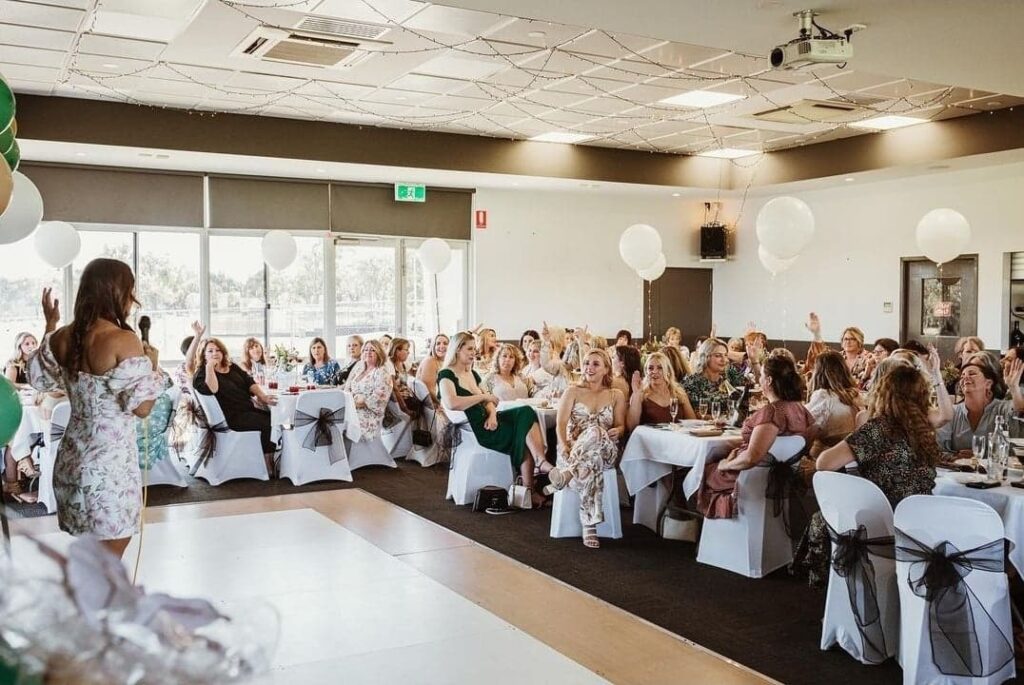
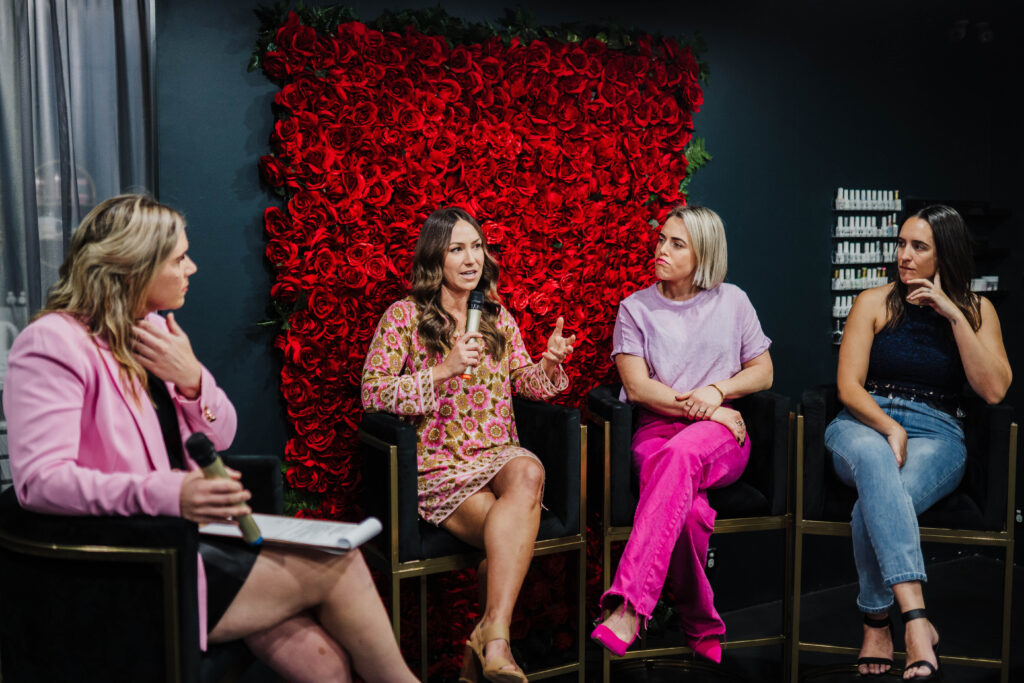
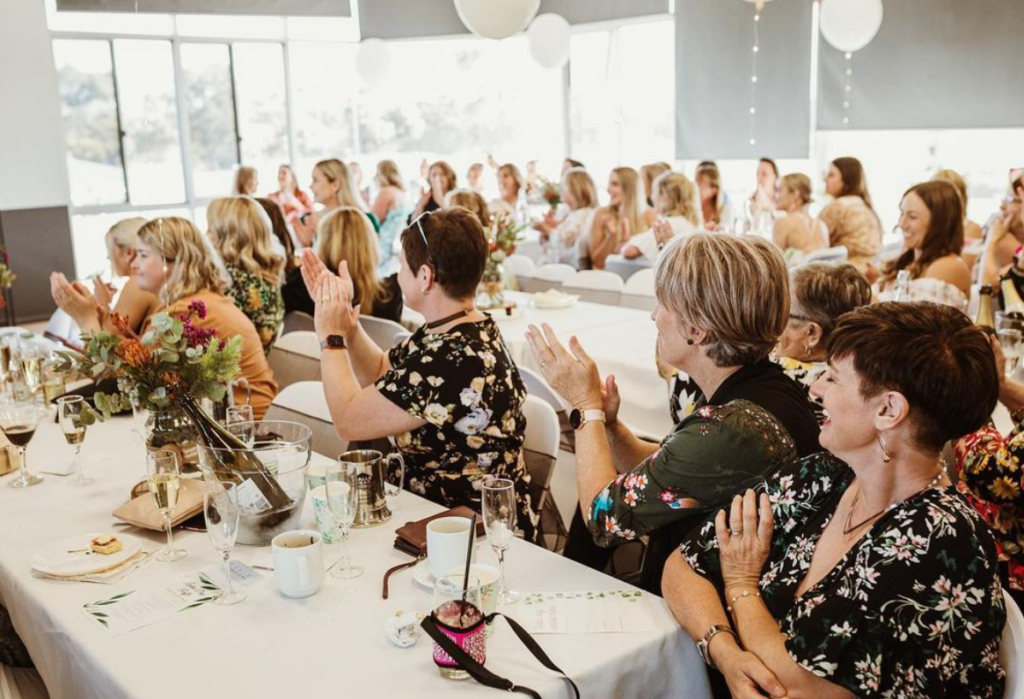
I’ve spent the past decade immersed in women’s health, working alongside leaders in the field and witnessing firsthand the transformation that happens when women gain body literacy.
I speak at conferences, corporate events, and women’s gatherings to break the cycle of shame and misinformation that has kept women disempowered for generations.
My mission is to ensure that your daughters don’t grow up just “sucking it up” like we did. That they understand their bodies as the magnificent, cyclical systems they are. That they see their periods not as a burden but as a superpower.
If you would like a resource to support that conversation – or even just to understand yourself, feel free to download Flow Foundations from the list of downloadable PDF’s in the Resources section
Want to bring this conversation to your audience?
I’m currently booking speaking engagements for 2025-2026, covering topics including:
- Body Literacy: Understanding Your Cycle Beyond Fertility
- Breaking the Period Stigma: Empowering the Next Generation
- The Missing Research: How Medicine Failed Women (And How We’re Fixing It)
- Hormonal Optimization: Working With Your Cycle, Not Against It
Let’s create a ripple in the ocean of change, so that future generations of women can live fully empowered in their bodies.
Because you were not put on this earth to suffer through womanhood.
Click here to learn more. Or, let’s jump straight on a call.
Jemaine Finlay is a women’s health expert with over a decade of experience. She has worked alongside leaders in women’s health and fertility, run her own naturopathic practice, and supported women around the world in reclaiming their hormonal health.



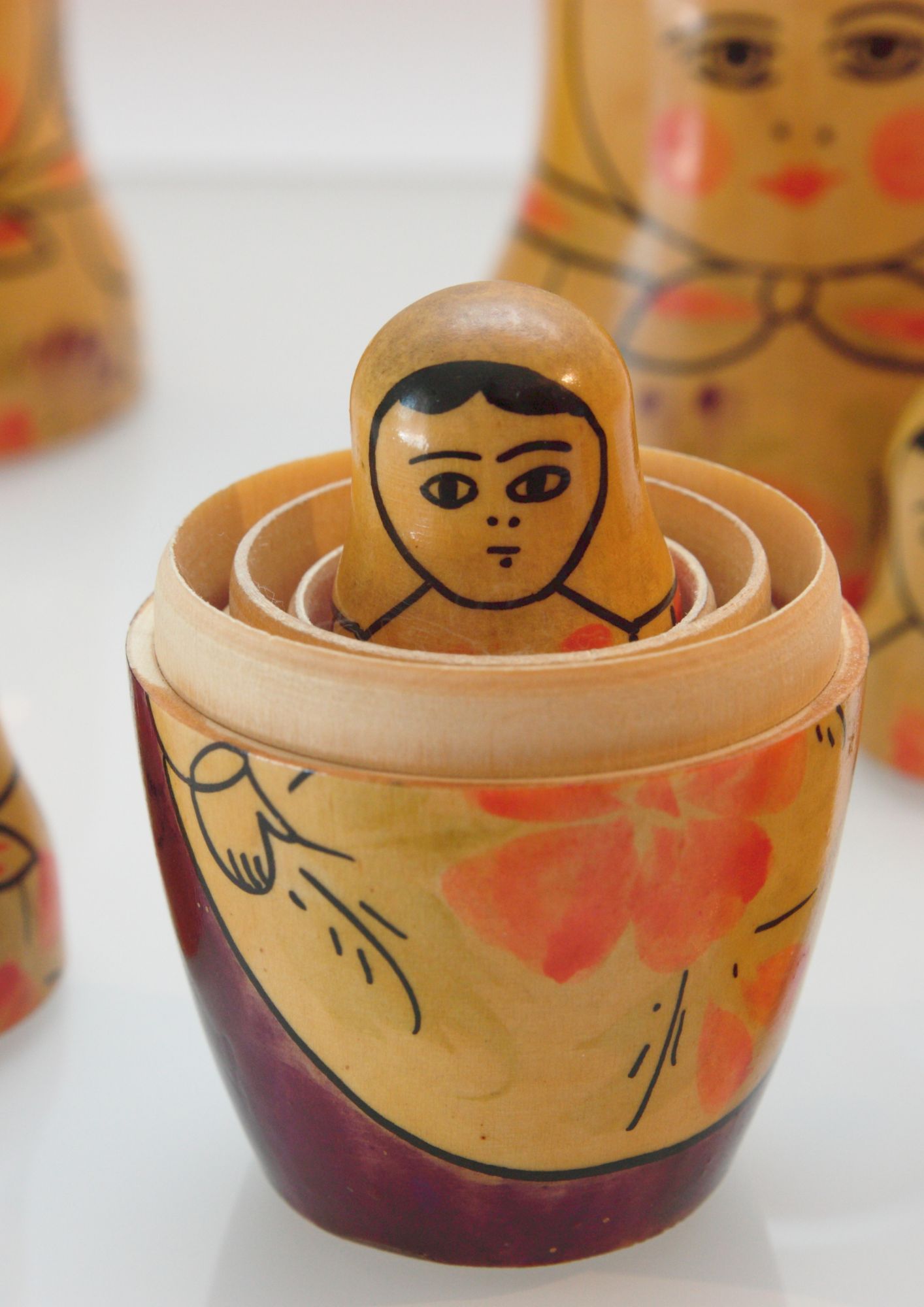
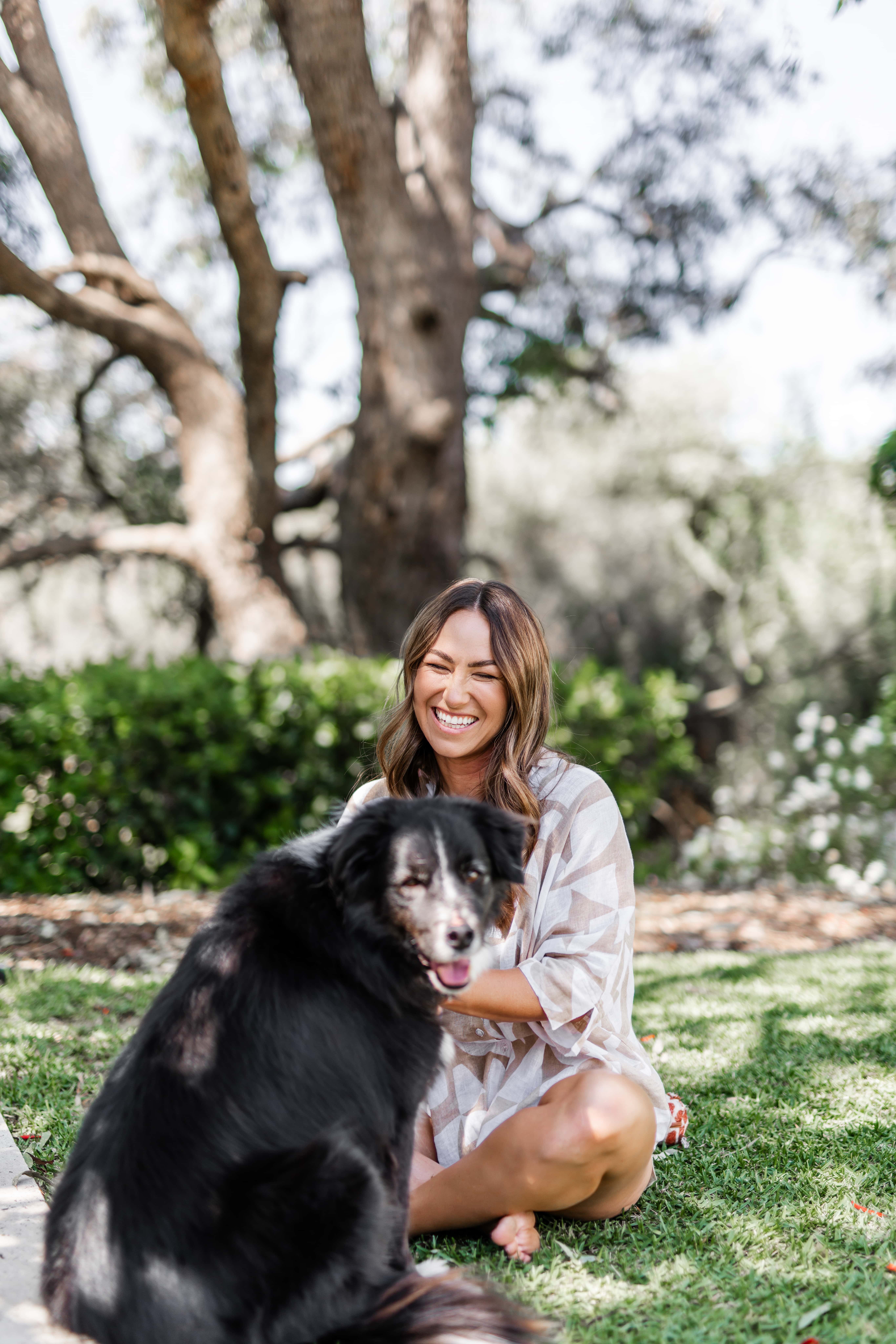
Read the Comments +